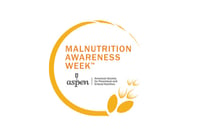
Changes in eyesight. Hearing loss. Bone deficiency. Some conditions are inevitable as we age – especially without proper care and attention. But there are many misconceptions and stereotypes surrounding aging that make the entire process difficult and even a little confusing.
One common myth is the idea that with aging comes a loss of interest in flavorful foods. While a loss of taste buds can happen over time, more research points to poor appetite and overall health as major factors in older adults’ changing tastes and flavorful food consumption.When it comes to seniors’ appetites, here are some things to consider.
Medication Side Effects
Medications like antibiotics or those used to lower cholesterol and blood pressure can drastically affect the taste of food. Some medicines can cause dry mouth, which in turn, can make food taste funny or hard to swallow. Other drugs and potent medications are known to cause nausea, resulting in little to no appetite for many. That’s why it’s always important to communicate with doctors and caregivers. Depending on the dose and the medication itself, alternatives may be within reach.
General Appetite Decline
From hormones to sensory nerves, appetite regulation can be complex, not to mention physiological factors that may include everything from dentures to saliva reduction. What’s more, is that many older adults have an impaired sense of smell and, as a result, taste, which will cause a worsening appetite. Visual impairment is common with age, too. One in five aged over 75 years, and one in two aged over 90 years, reporting a loss in eyesight, which surprisingly enough, can also negatively affect your appetite.
Other Treatments and Environmental Factors
Medical treatments for cancer can not only alter the taste of food, but can make the sense of taste go away completely for some patients. The good news? The flavors in food often fully return when treatment ends. Other lifestyle choices or elements can play a significant role in taste and appetite as well. From smoking and alcohol use to respiratory infections due to changing environments, it is important to evaluate, treat and in some cases, avoid the habits or situations that may be contributing to a decline in food taste or consumption.
Flavorful and wholesome food is important for every seniors’ quality of life and their health because better tasting meals means they will eat and, ultimately, have better outcomes in terms of wellness. Today's home-delivered meals can provide tasty and healthy nutrition for older adults.











